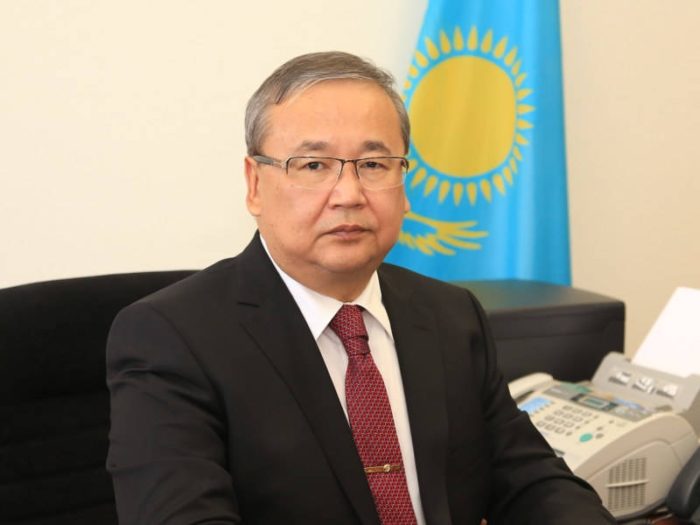NUR-SULTAN – This year marks the 30th anniversary of the closure of the Semipalatinsk nuclear test site. On August 29, 1991, Kazakh First President Nursultan Nazarbayev signed a historical document, a decree on the closure of the Semipalatinsk nuclear test site.

The international community, recognizing the contribution of Kazakhstan in strengthening the non-proliferation regime of weapons of mass destruction, elected Erlan Batyrbekov, Director General of the National Nuclear Center of Kazakhstan as a Chairman of the Working Group B of the Preparatory Commission of the Comprehensive Nuclear Test Ban Treaty Organization (CTBTO).
The appointment ceremony took place online on March 8 with the participation of representatives of more than 150 countries worldwide. The CTBTO is an international organization that monitors compliance with the Comprehensive Nuclear Test Ban Treaty.
Kazakhstan was one of the first among the Commonwealth of Independent States in 1996 to accede to the Comprehensive Nuclear Test Ban Treaty, which is one of the cornerstones in the system of international security and nuclear non-proliferation.
“Certainly, the chairmanship of the CTBTO Working Group B is a strong result of our country’s course towards strengthening the regime for the nonproliferation of weapons of mass destruction,” said Batyrbekov.
Norway, Paraguay and Kazakhstan representatives were nominated for the position of a Chairman, while Joachim Schulze (Germany) previously chaired the group for four years.
“Previously, all the candidates carried out an extensive work, the voting took several months, we presented our programs and had a number of consultations with representatives of different countries,” added Batyrbekov.
Kazakhstan set an example to the world by abandoning the world’s fourth largest nuclear arsenal and by deciding to close one of the world’s third largest nuclear test sites, Semipalatinsk Test Site.
Kazakhstan provided strong support to the CTBTO and demonstrated determination in achieving its goals. The cooperation of the National Nuclear Center and the CTBTO was crucial in the creation of the International Monitoring System (IMS).
In particular, four seismic and one infrasound stations of the IMS, as well as the Kazakhstan National Data Center, operate under the control of the National Nuclear Center. Today, the first station for radionuclide monitoring of noble gases is being created in Central Asia, the National Nuclear Center said in a recent statement.
The participation of Kazakhstan in the work of the Preparatory Commission for the CTBTO as the chairman of the group is a good opportunity to disseminate the unique experience of Kazakhstan, and share proven and time-tested methods of reducing the global threat.
